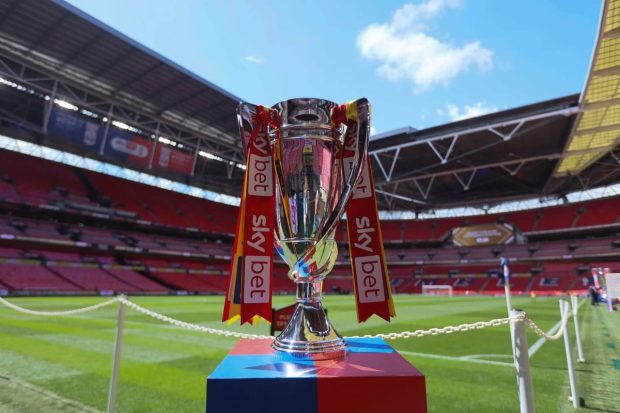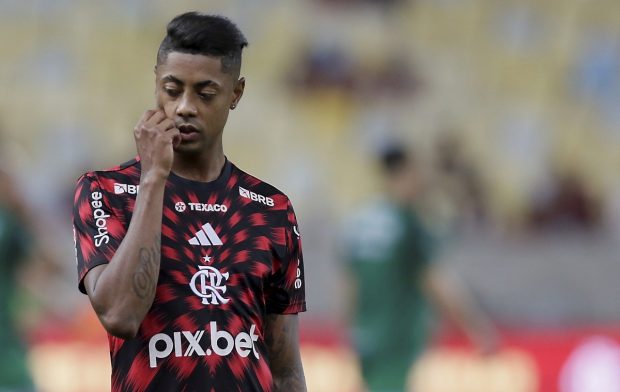
OKLAHOMA CITY — Naz Reid may be the most beloved sixth man in the league. Maybe ever. Tattoos with his name adorn the calves, wrists, fingers and even the inside of lower lips of fans all over Minnesota. A beach towel with his name on it is one of the most treasured giveaways the Timberwolves have ever promoted. Wolves fans use his name as a greeting, a farewell, a congratulation or a battle cry.
Advertisement
Naz Reid.
The church of Naz was built upon a divine development story. From undrafted rookie free agent to Sixth Man of the Year. From a 265-pound plodder to a 240-pound panther. His combination of outside shooting, low-post footwork and a handle that belongs on the old And1 mixtapes means that Anthony Edwards is the only Timberwolves player who can rival his popularity in the market.
That is the Naz Reid the Timberwolves need in their return to the Western Conference finals. That is the player who gave the Oklahoma City Thunder so many problems in the regular season, averaging 22.5 points and 11.0 rebounds in the four games. That is not the player the Wolves got in Game 1.
Reid scored just four points in nearly 28 minutes, going 1 of 11 from the field, 0 of 7 from 3-point range and turning it over three times in Minnesota’s 114-88 loss to the Thunder. The Wolves were outscored by 21 points when Reid was on the floor.
There were myriad other reasons the Wolves fell flat in the opener, from Donte DiVincenzo and Nickeil Alexander-Walker combining to shoot 6 of 25 from the field (including 5 of 21 from 3), the Thunder defense refusing to let Julius Randle beat them and limiting Edwards’ role, 19 Wolves’ turnovers that led to 31 points for OKC and the frustrating whistle granted to Thunder star Shai Gilgeous-Alexander.
We start with Reid because of how important he is to these Wolves. There is a different sizzle about them when Reid is rolling, his braids trailing behind him like a cape as he weaves his way to the rim. Edwards may be the most confident player on the team, but Reid gives them their swag with his deep bag of tricks that he goes to when he enters the game, usually midway through the first quarter.
The Wolves went 8-2 in the first two rounds of the playoffs in part because Reid was largely on his game. He shot 43.5 percent from deep against the Golden State Warriors in the second round and 50 percent on 3s against the Los Angeles Lakers in the first round, giving the Wolves that scoring punch off the bench that they sorely needed. He figured to be an antidote when the Thunder went smaller with a five-out lineup that would put pressure on Wolves center Rudy Gobert. Reid did grab eight rebounds and dish out four assists, but that was nothing compared to what the Wolves are used to seeing from him.
“Just a rough night,” Reid said. “I don’t remember the last time I shot like that. It comes and goes. I’m not too concerned. As long as I impact the game in other categories as well, that’s how you stay on the floor.”
The Wolves’ bench has been one of their biggest strengths all season. Coach Chris Finch likes to say that he has eight starters, with DiVincenzo and NAW rounding out the trio. Finch’s faith in them has been validated by this trip to their second conference finals in as many seasons. But the bench failed them in Game 1. DiVincenzo was 3 of 12 on 3s. Alexander-Walker was 2 of 9 from deep.
Advertisement
They are going to get open looks in this series because the Thunder prefer to load up on the paint to keep Edwards out of there. They all have to hit shots at a high clip to open driving lanes for Edwards and Randle.
“We had good looks. We just have to make shots,” DiVincenzo said. “Myself, I have to make a couple shots and it loosens up the defense for Ant. It’s a domino effect. But for the most part we got the looks that we wanted, and we just have to take care of the ball and limit them to one shot.”
The Wolves were one of the best 3-point shooting teams in the league during the regular season, hitting 37.7 percent. But the Thunder’s defense sped them up considerably, forcing them to shoot earlier in the clock and rush their mechanics to avoid the intense defensive presence on the perimeter. Minnesota became the first team in conference finals history to attempt at least 50 3s in a game. But it made only 15 of them. Randle was 5 of 6 on 3s while the rest of the team went 10 of 45.
“There are a lot of good shots out there. We gotta clean things up a little bit,” Finch said. “Sometimes the passes were late. Sometimes we weren’t quite shot-ready. Sometimes we need to turn them into other plays. But I did think we got a number of really good looks and couldn’t connect when the game was turning against us.”
The Wolves led 48-44 at halftime but were outscored 70-40 in the second half. A game that felt winnable early quickly disintegrated, and now they have to recalibrate much like they did after losing Game 1 to Golden State in the second round. The one major difference: The Thunder did not lose their best player the way the Warriors lost Steph Curry.
“They were aggressive. That’s who they are,” Reid said. “That’s kind of their identity. We knew that going into the game. We just let it get the best of us today. We know better. We’ve got to be better. The beauty of it is, you play in two days.”
Advertisement
Some other takeaways from Game 1:
OKC’s defense smothers Randle in the second half
The game was playing out much like the rest of the playoffs for the Wolves in the first half. Minnesota struggled to get going offensively, but Randle made enough shots to keep it afloat. He erupted for 20 points in the first half, going 5 of 6 from 3 while his teammates went 5 for 22.
ARE YOU KIDDING?!? pic.twitter.com/X9vMwOTBYm
— Minnesota Timberwolves (@Timberwolves) May 21, 2025
But Oklahoma City ramped up the pressure in the second half and really made it difficult for Randle and Edwards to get clean looks. The Thunder were willing to live with DiVincenzo or Reid or Alexander-Walker beating them from 3 if they got hot. They just loaded up on Randle in the second half, holding him without a field-goal attempt for the first seven minutes of the third quarter. He took just five shots in the second half and scored eight of his 28 points.
“That’s on me. I gotta get him the ball,” Finch said. “I gotta get him more involved to start the second half.”
Edwards went a quiet 5 of 13 from the floor. He left the game briefly with what appeared to be a sprained ankle but returned and gutted it out. Edwards said the ankle did not affect him, but it looked like his mobility was not quite what it has been.
“I’ve definitely gotta shoot more,” said Edwards, who finished with 18 points. “I only took 13 f—ing shots. But I would say probably just get off the ball a little more, play without the ball. I think that will be the answer.”
Randle (five turnovers) and Edwards (four) combined for nine of the team’s 19 turnovers. The Thunder scored 31 points off the mistakes, which cannot happen in a series like this.
“I’m always going to hold myself accountable,” Randle said. “Five turnovers, it’s way too much. I can’t do that. We can say it’s misses and makes and it is a miss-and-make league, but regardless, we’ve got to defend at a high level and especially on the road. Especially on the road.”
Advertisement
Gobert plays sparingly
This series sets up as an intriguing one for Gobert. For the first time in these playoffs, the Wolves are playing a team with legit size in the frontcourt. The Lakers and Warriors both very much preferred to play small. When they tried to go big with a traditional center like Jaxson Hayes or Quentin Post, it didn’t last long.
Gobert was able to thrive in those series with his defense. There were stretches where he did not play, but he came up big in both closeout games, including 27 points and 24 rebounds to send the Lakers packing in Game 5. On Tuesday night, Gobert played just 21 minutes and picked up two points and three rebounds, shockingly terrible statistics for such an important player.
Part of his paltry playing time was attributable to two fouls in the first two minutes of the game. Finch said he thought the second foul was questionable, but it forced him to sit Gobert for the remaining 10 minutes of the quarter. When he returned, he could not find a place in which to be effective against Isaiah Hartenstein, Chet Holmgren and Jalen Williams.
“I just wanted to go with a more small and skilled lineup when we got down to see if I could change the complexion of the game,” Finch said.
Gobert’s absence opened the floodgates for the Thunder, who shot 62 percent from the floor and were 8 of 13 from 3 in the second half to pull away. The Wolves also managed just 20 points in the paint, their lowest season total, and were out-rebounded 46-42.
Gobert needs to punish the Thunder on the glass if the Wolves are going to stick with him. Three rebounds won’t cut it.
The frustration of SGA’s game
The Wolves did a phenomenal job on Gilgeous-Alexander in the first half, holding him to 2-of-13 shooting. But SGA shot seven free throws in the first four minutes of the game, a display of foul-baiting that frustrated the Wolves to no end.
Advertisement
The Timberwolves know all about Gilgeous-Alexander’s … tactics. Target Center invented the “Free Throw Merchant!” chant earlier this season and Edwards wasn’t having it in the first quarter when SGA was consistently falling to the ground. After one of several stumbles, Edwards tossed the ball at Gilgeous-Alexander while he was on the ground, picking up a technical foul.
Ant got a tech for tossing the ball at SGA. pic.twitter.com/TvpF0WvDWp
— NBA on ESPN (@ESPNNBA) May 21, 2025
Jaden McDaniels fouled out of the game, and Finch and assistant Micah Nori were in regular dialogue with officials James Capers, Tyler Ford and Mark Lindsay. Even Mike Conley, who has never been assessed a technical foul in his 18-year career, was making his voice heard.
“I got out of character a couple of times,” Conley said. “And we talked about that at length throughout the playoffs, keeping our heads, keeping our focus on the game. We’ve got to be better. We expected it. We know what’s to come. It’s going to be those kinds of games where you feel like you didn’t do something, and they did the same thing and it just wasn’t called the same. But it happens, and we’ll be better.”
Finch has shown a willingness to be critical of officiating in the past, but he said after the game that the Wolves just have to find a way to play through it.
“There was a lot of frustration out there,” Finch said. “We talked about that before the series started. We have to be able to put that to the side and get on with a next-play mentality.”
Gilgeous-Alexander is one of the craftiest players in the league, and one of the league’s biggest foul-baiters.
Gilgeous-Alexander is going to get calls. He’s going to fall to the floor. That’s part of his game. As frustrating as it can be to experience, the Wolves have to find a way to better channel their emotions. The Thunder, albeit the younger team, showed more maturity in handling calls they did not like. It wasn’t the difference in the game, but it will be something that has to improve the rest of the way.
(Photo of Naz Reid and Chet Holmgren: Nate Billings / AP)
This news was originally published on this post .







Be the first to leave a comment